- Energy Storage & Decarbonization Pathways
- Grid Infrastructure
- Just Transition
- Project Finance
- Renewable Energy Innovation
- Siting & Permitting Reform
- Sustainable Investing & ESG
- Tax Incentives & Appropriations
- Trade & Supply Chain
- Transmission & Power Markets
- Workforce
- Blog
Exploring the Future of Clean Energy Investment at the 2024 ACORE Finance Forum in New York City
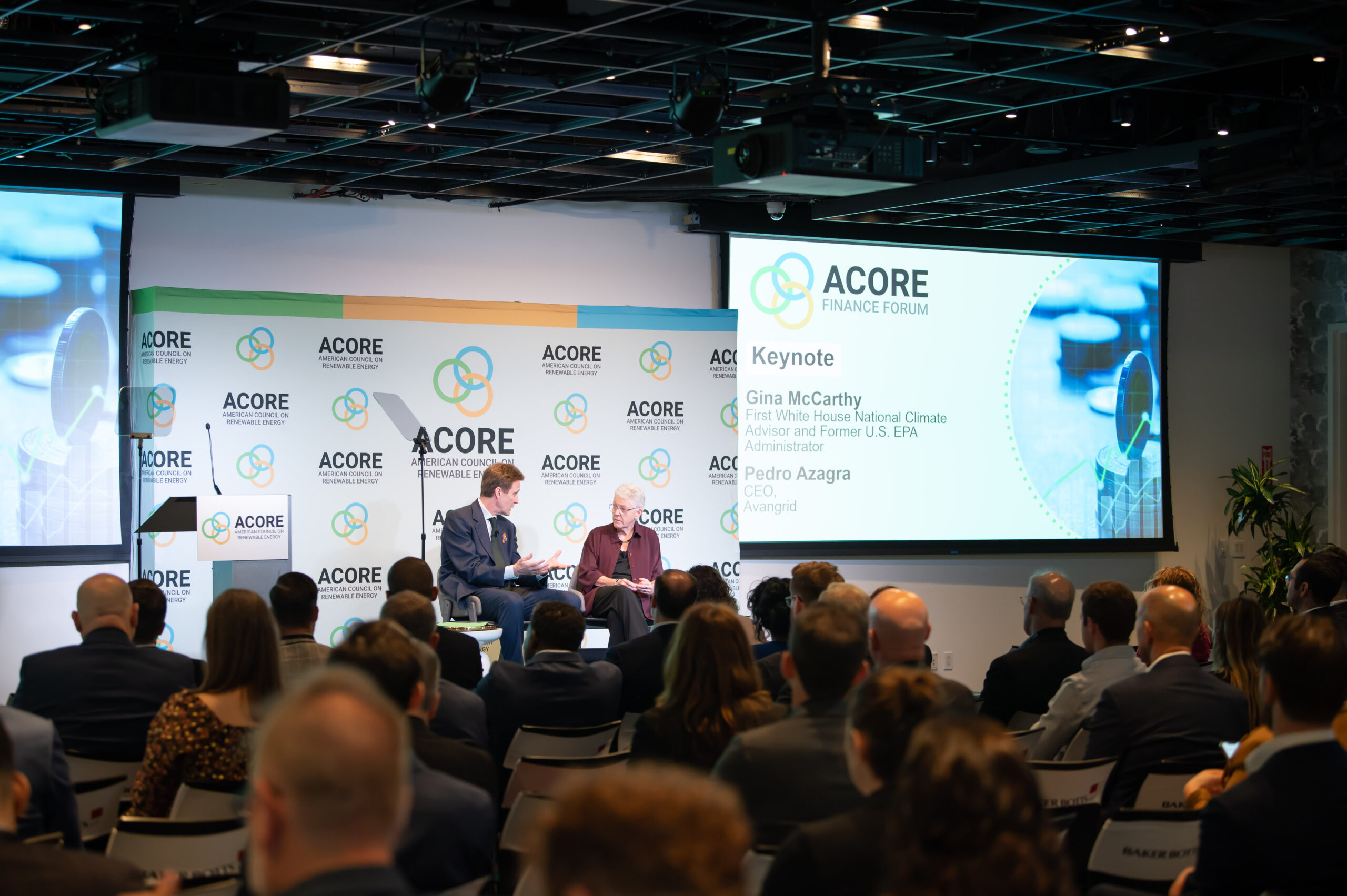
On June 4-5, the American Council on Renewable Energy (ACORE) team hosted our annual Finance Forum in New York City, where attendees examined the trajectory for clean energy sector investment in the face of evolving opportunities and headwinds.

ACORE President and CEO Ray Long kicked off the conference with opening remarks highlighting the progress made toward achieving the clean energy transition. “We’re winning, and we’re winning now,” Long said to the audience. “Just look at the deployment numbers, where investment dollars are going, what residential consumers are buying and want to buy… But, in order for all of us to win, we need to make sure we’re talking to each other in terms we can all understand and relate to.” After Pedro Azagra, CEO of Avangrid, interviewed keynote speaker Gina McCarthy, the first White House National Climate Advisor and former U.S. Environmental Protection Agency (EPA) Administrator, Long presented her with a Lifetime Achievement Award for her countless contributions to the clean energy sector, along with a congratulatory message from Boston Red Sox baseball great David Ortiz.

Scaling Capital to Meet Demand Growth
A major theme identified at last year’s Finance Forum was the rapidly growing market for new and expanded tax credits. This year, a focal point was not just the continued uptake of those incentives, but the rapidly growing demand for electricity itself, which is rising for the first time in two decades. A trend underpinned by several economic drivers of the modern U.S. economy – expanding data centers, the growth of artificial intelligence, industrial electrification, and domestic manufacturing activity – meeting electricity needs is presenting both opportunities and near- and long-term challenges.

Speakers across the Finance Forum identified the siting and permitting of new infrastructure as a key impediment to keeping pace with demand growth, echoing calls for congressional action. “We’re a believer in permitting reform,” stated the Department of Energy (DOE)’s Under Secretary for Infrastructure, David Crane. In his keynote interview, U.S. Senator Bill Cassidy (R-LA) described reforms, including to judicial review, as “absolutely essential” and suggested there is room for compromise on bipartisan legislation. On the financing side, capital is ready to help clean energy projects overcome siting and permitting delays and other non-financial barriers, observed BlackRock’s David Giordano. However, deploying the full depth of that capital will require markets to find more innovative ways to capture efficiencies.
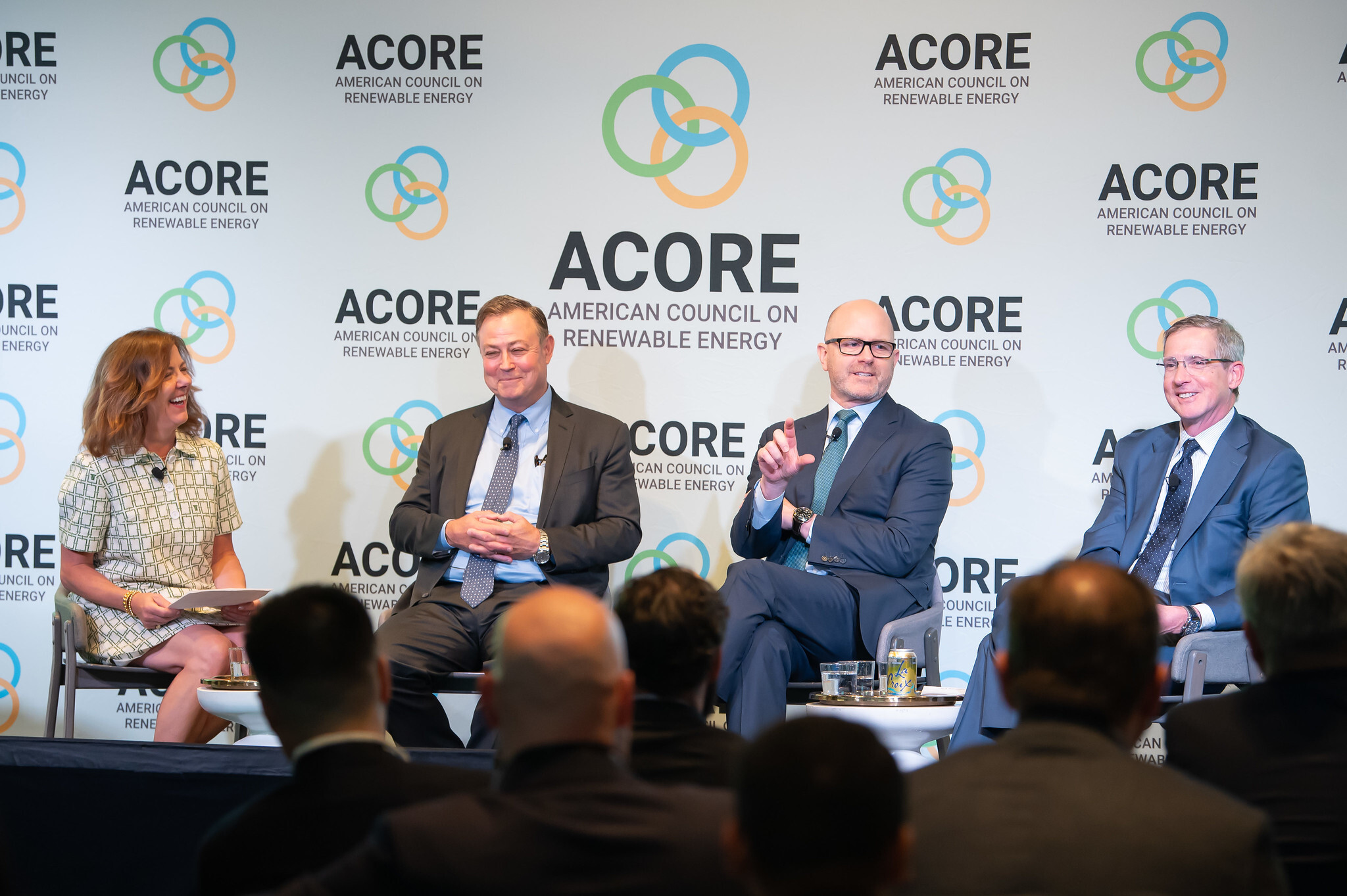
Panelists also discussed how the clean energy sector is positioned to form the backbone of meeting this demand growth. “There are a lot of forces calling for the industry to get bigger,” observed Ray Wood with Bank of America. Concurrently, recent market headwinds, such as higher interest rates and inflation, have shown some signs of relaxation. These dynamics are helping to make 2024 a resurgent year, remarked Marathon Capital’s Ted Brandt.
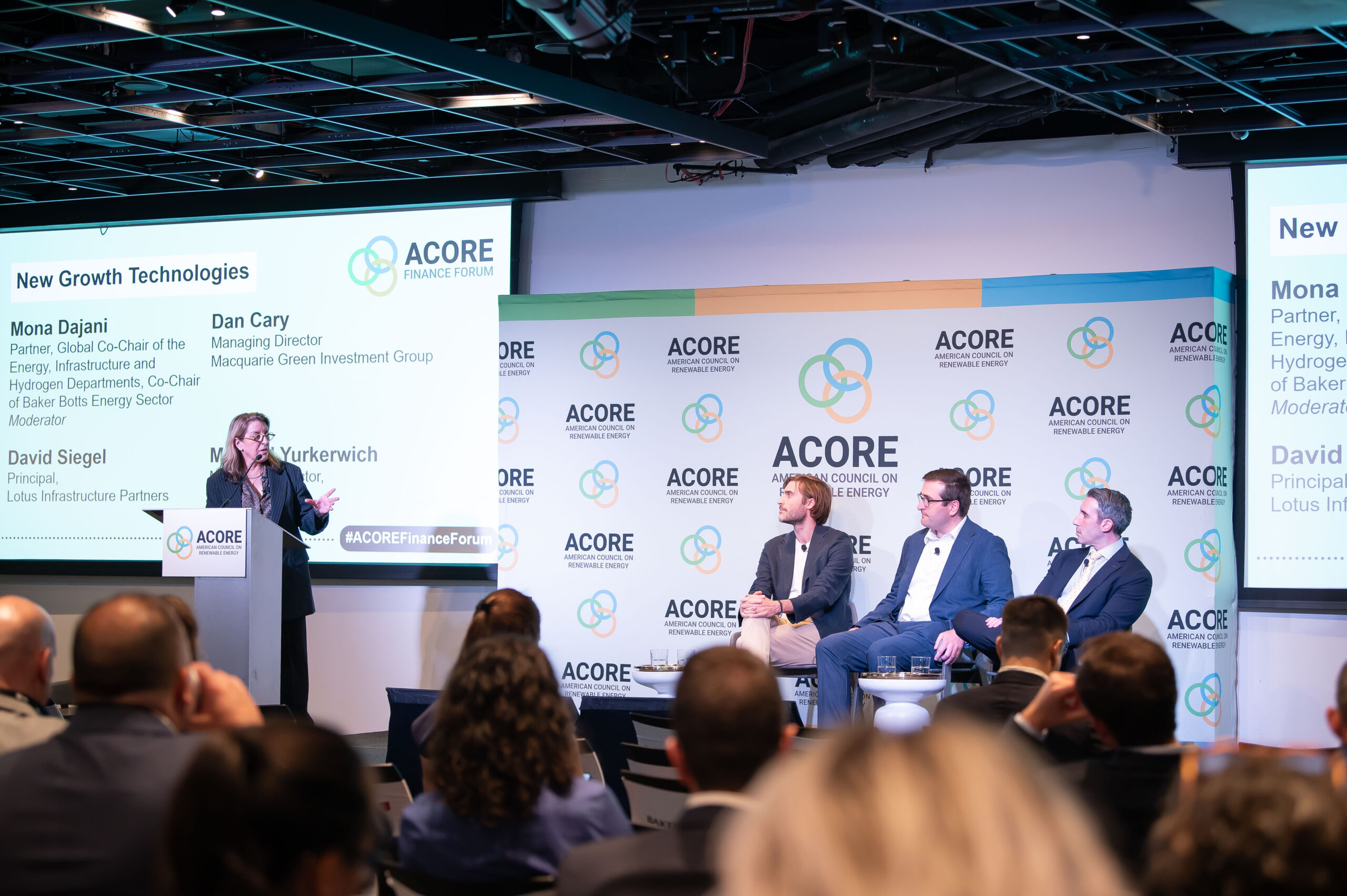
Panelists also spoke to the importance of scaling emerging sectors. Senator Cassidy noted that offshore wind “has a tremendous role” to play in the overall generation mix, while both he and Under Secretary Crane individually highlighted the importance of clean hydrogen. Speaking on a panel about new growth technologies, Dan Cary of the Macquarie Green Investment Group called attention to localized distributed energy, including decentralized geothermal and battery storage solutions.
The Expanding Market for Tax Credits
With the availability of new and expanded federal tax credits, panelists emphasized the importance of expanding the market for monetizing tax credits to $50 billion or more annually. Transferability, where project sponsors can sell the tax credits they generate directly to a buyer, is now available to investors in addition to traditional tax equity. Panelists noted the entry of both new capital providers and new methods for driving financing to projects over the past year, as a result of these developments.

Hybrid tax equity and transferability structures have become much more widespread in the market. According to Jordan Newman of Wells Fargo, traditional tax equity investors are facilitating the participation of new corporate buyers in the market through hybrid transactions. Although these structures are novel in the market, tax equity investors’ approaches have been similar to traditional transactions, as they conduct the same diligence and enter into the same structure, which raises comfort levels for new transferable tax credit buyers. Tom de Swardt of DE Shaw Renewables Investments shared that this is quickly becoming a “default product” of banks.
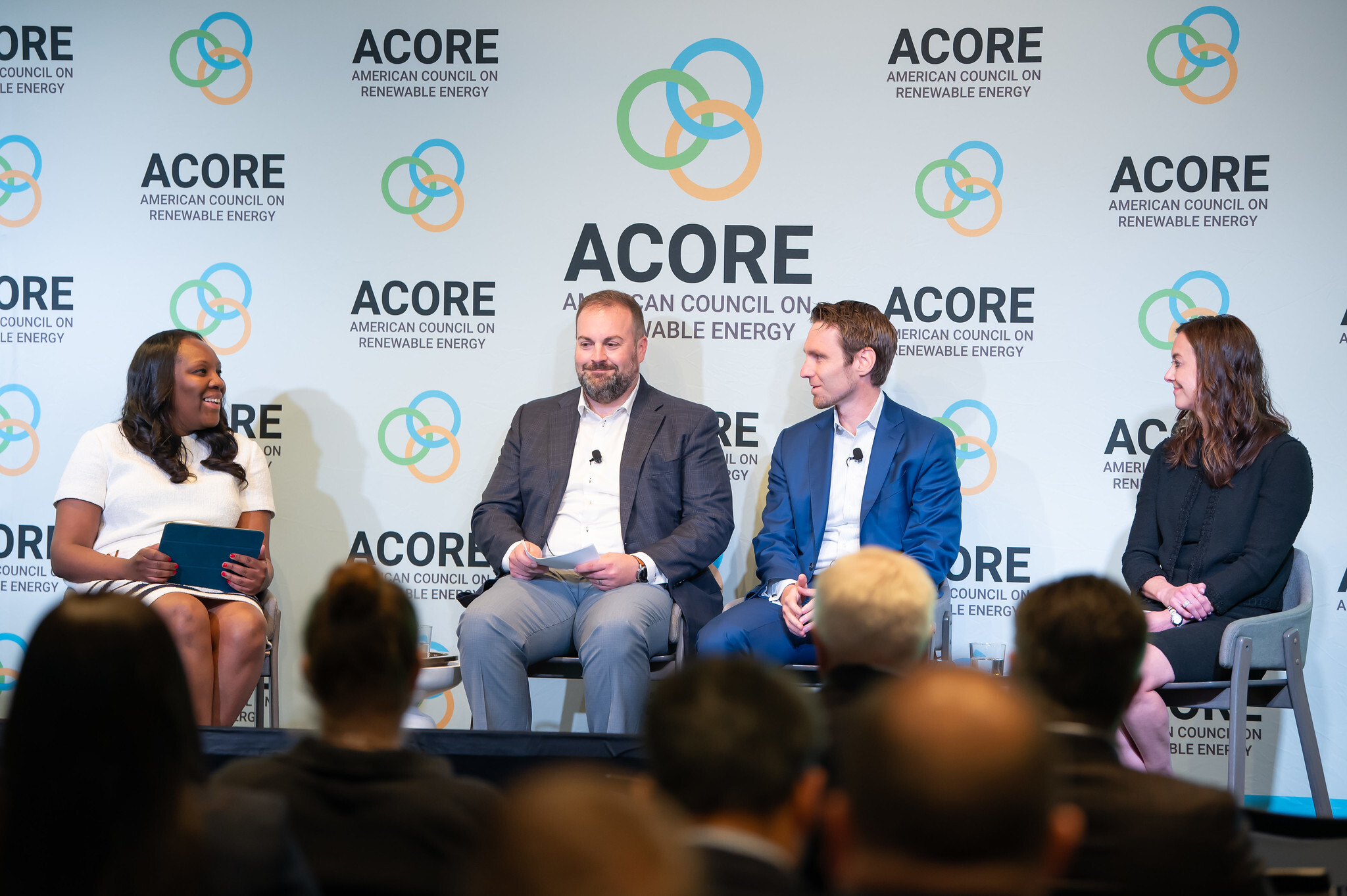
Transferability has also helped to expand the market of investors to new entrants and smaller players. During a discussion among C-Suite panelists, Ingmar Ritzenhofen of RWE Clean Energy described transferability as a “strictly required enabler” for the industry that “allows us to tap into a much bigger pot of capital.” Alfred Johnson, founder of the tax credit trading platform Crux, highlighted how transferability has allowed smaller projects to access capital in the tax market.

The Role of Debt Capital
The overall growth of liquidity in the debt market has been a positive development, though debt financing will need to adapt to emerging tax equity-transferability hybrids and other evolutions in project finance. Delays in executing transactions from their relative inexperience is a complicated dynamic associated with this trend that may impact developers, observed WSGR’s Edward Kayukov. Due to high market demand, investors have also had to spend more time prioritizing the choices that are now available. Panelists also discussed innovations in their deal structures as they face an environment of constrained tax equity availability.
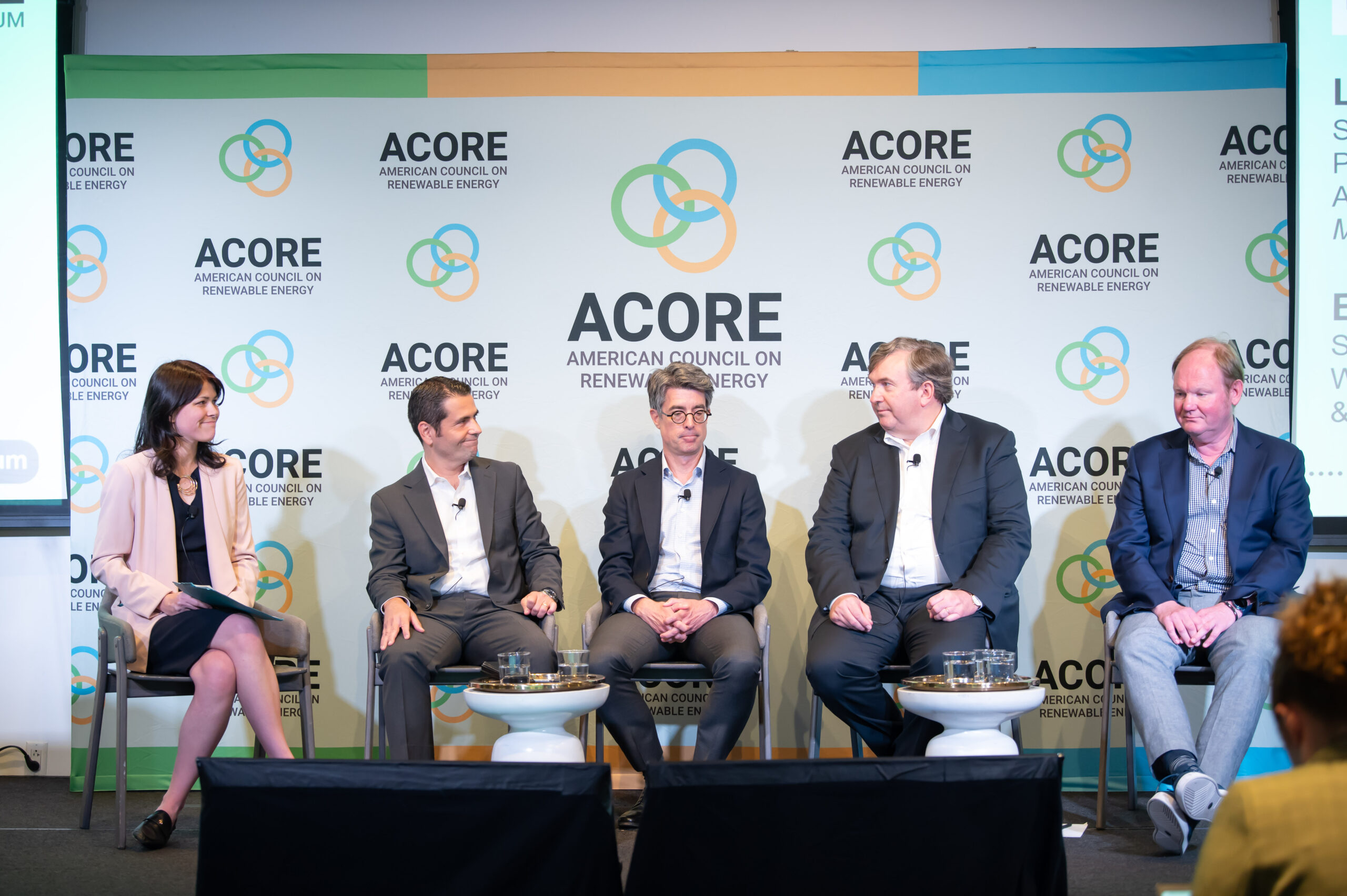
Multiple panelists identified risk as a key metric for how they prioritize transactions. As Martin Toulouse of DOE’s Loan Programs Office (LPO) explained, the LPO’s programs can help with riskier projects, as they are based on set pricing that can be advantageous to some developers, particularly with respect to capital intensive projects and emerging technologies.
Corporate Offtake Amidst Rising Demand
The reality of accelerating demand growth has also had implications for corporate buyers, suggested panelists. As leading companies like Amazon Web Services and Google establish more data centers, panelists noted that their search for the power necessary to grow their businesses underscores the importance of corporates’ relationships with other participants in the system. Partnerships with utilities are critical to inform their projections on load growth and allow for effective planning, though Will Conkling of Google urged corporates to think further about how they can be “participants in the grid, not just consumers of the grid.”
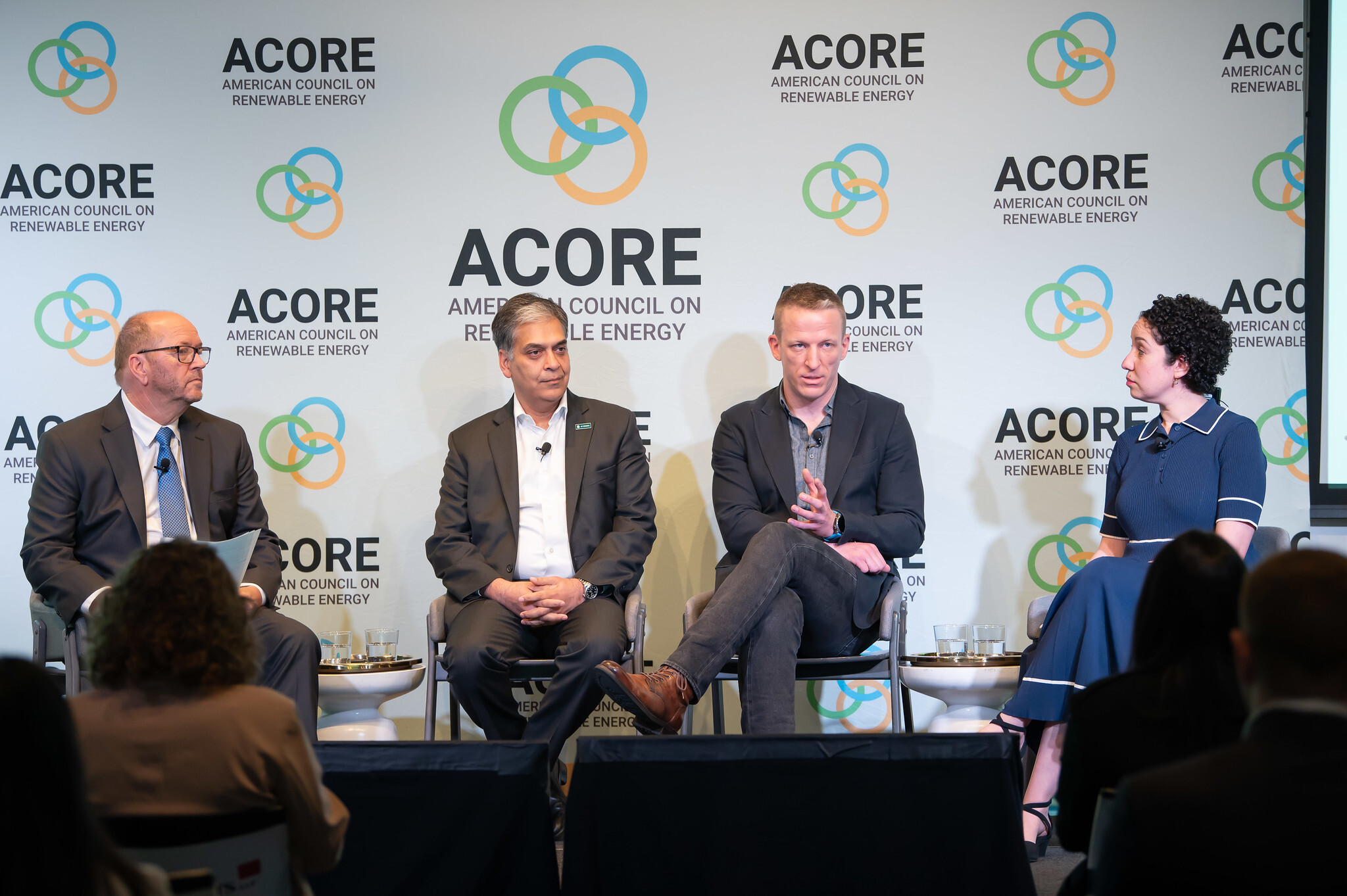
Through partnerships with independent power producers (IPPs), corporates play a large role in harnessing the requisite capital to bring more clean energy into the grid. Gaurav Raniwala of GE Vernova cited a particular need for corporates to increase their participation in the tax monetization market and highlighted how corporates should receive recognition for their role in catalyzing the energy transition in transactions that do not involve renewable energy certificates (RECs). Conkling discussed the importance of aligning corporate strategy with IPP partners, identifying areas where they can grow together and mitigate impacts from lengthy interconnection delays.
How Finance Can Drive Equity in the Energy Transition
An essential part of the energy transition highlighted by Finance Forum speakers is to ensure that everyone shares the benefits of affordable, reliable, and clean electricity, and that all people, including those from underserved communities, can participate in the development of the clean energy sector. National Urban League President and CEO Marc Morial emphasized the importance of guiding the energy transition with the principle of equity, remarking that “if we make that commitment at jump street, at inception… we can achieve it.”

Speakers also underscored the importance of scaling small- and mid-sized developers to unlock more clean energy capacity by bringing more companies into the fold. Panelists agreed that there is a high barrier to entry into the clean energy landscape for these developers today, which U.S. Bank’s Clark Conlisk said is compounded by the “shortage of pre-development working capital” and the impact of high interest rates. Nevertheless, there are new streams of capital coming into the market from federal grants that can assist in addressing this issue. Michael Hoffman of the Coalition for Green Capital described the direct investments the Coalition is working to make with its Environmental Protection Agency (EPA) grant funds as “the grease that makes something happen that might not have happened.” But to truly cement equity into the core of the transition, panelists stressed that building relationships in communities is paramount.
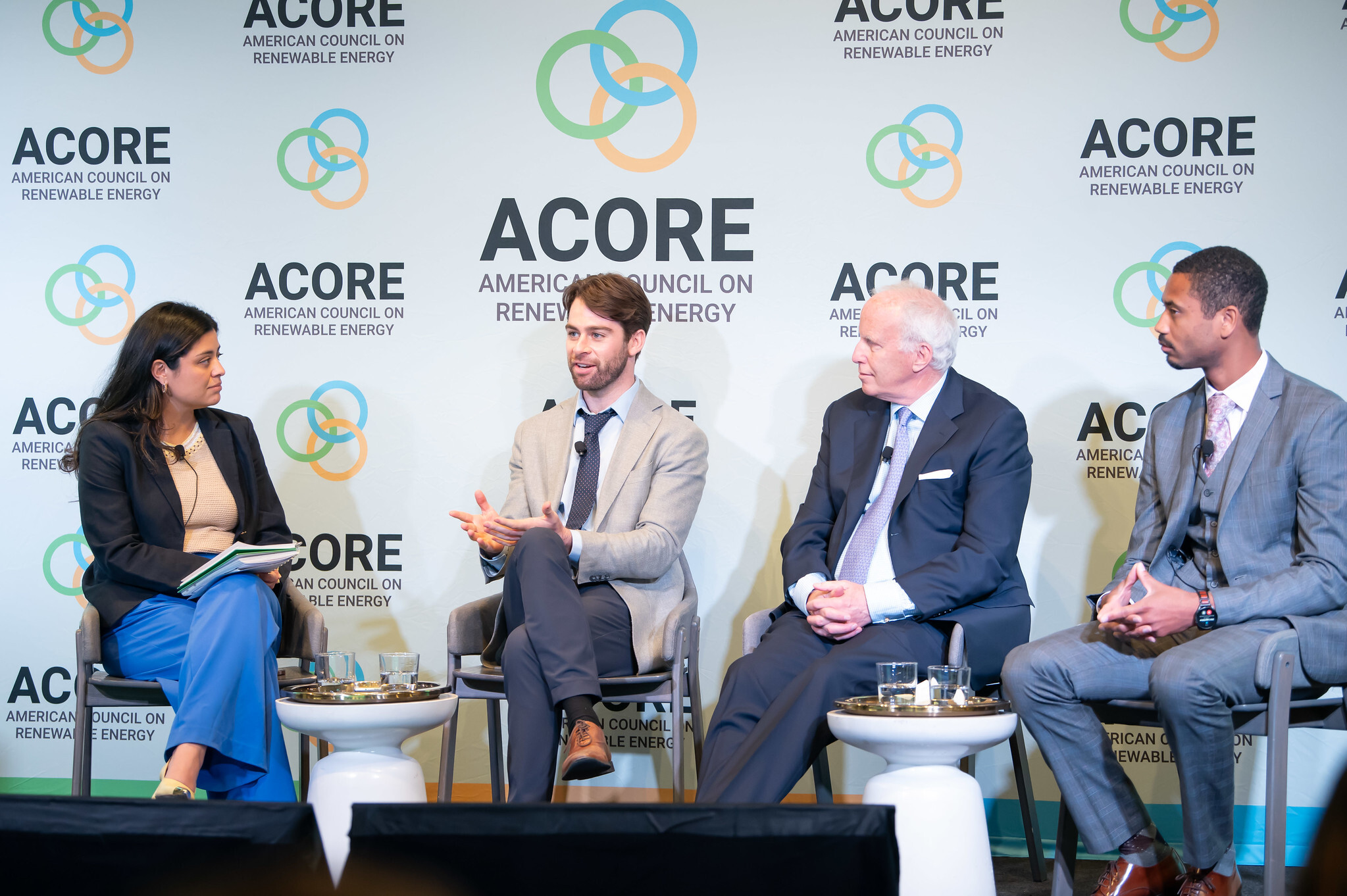
Domestic Manufacturing and The Clean Energy Supply Chain
Panelists at the Finance Forum examined recent progress in building new and expanded clean energy manufacturing operations in the U.S., which Treasury’s Ethan Zindler highlighted as one of the strongest categories of investment. Those commitments have been met by roughly $20 billion in financial support overseen by DOE’s Office of Manufacturing and Energy Supply Chains (MESC), which Giulia Siccardo with MESC noted has been aimed at bolstering segments of the supply chain where the U.S. possesses little to no existing capabilities. From a private sector lens, the effect of those efforts is already being felt, shared Nidhi Thakar of NJT Strategies & Consulting.

While speakers described how recent policies have proved effective, panelists were realistic about the obstacles that remain to fully onshoring clean energy manufacturing. Korina Sanchez with SolX noted that a key challenge is managing the effects of supply chain volatility on companies’ business models, while Tom Starrs of EDP Renewables North America stressed the importance of resolving tariff issues that, as a matter of policy, have been similarly volatile. Starrs and Sanchez also put into perspective the central role that federal manufacturing incentives play in making the integration of U.S.-sourced components more economically viable.
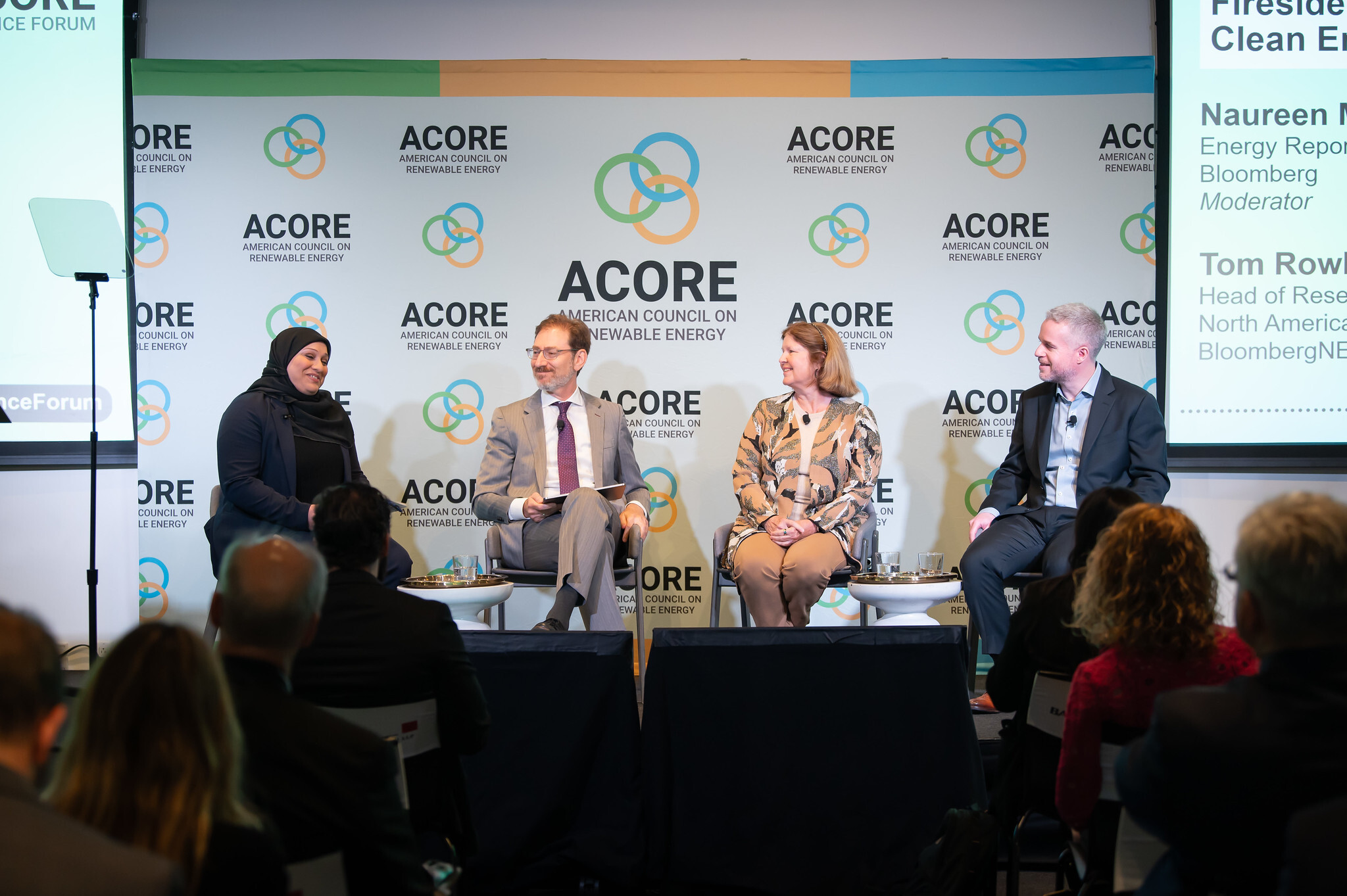
On behalf of the ACORE team, thank you to all who were able to join us for the 2024 ACORE Finance Forum, with immense gratitude to our incredible group of sponsors that made the event possible. A gallery of photos from the event can be viewed here. Our next signature conference will be the ACORE Grid Forum on October 10 in Arlington, Virginia. We hope you will join us there.
Authors

ACORE Team Member

ACORE Team Member

ACORE Team Member
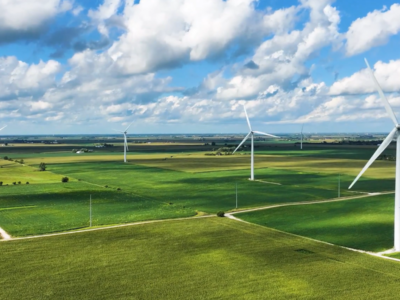
ACORE Intern
Join leaders from across the clean energy sector.

What will our next 20 years look like? Here’s the truth: they’ll be better with ACORE at the forefront of energy policy.
Shannon Kellogg
Amazon Web Services (AWS)


